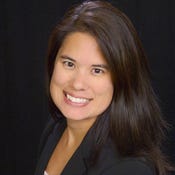Lawmakers Try To Sharpen FDA Focus On Healthcare Apps
Congress attempts to clarify which health software should be regulated like a medical device with the Sensible Oversight for Technology which Advances Regulatory Efficiency Act.


10 Mobile Health Apps From Uncle Sam
10 Mobile Health Apps From Uncle Sam(click image for larger view and for slideshow)
The number of medical apps and software products is mushrooming.
Currently, nearly 100,000 mobile medical apps are available, which is double the number from last year. Moreover, those numbers don't include other software products such as electronic health records (EHR) and clinical decision support (CDS) software.
On the EHR front, much of this growth is due to the incentives -- and penalties -- put in place by the Centers for Medicare and Medicaid Services (CMS). Although the FDA issued final guidance last month specifically addressing mobile medical applications, there remains some confusion about how the FDA should or should not regulate other healthcare-related software.
In an attempt to straighten out this increasingly tangled regulatory picture, last week U.S. Rep. Marsha Blackburn (R-TN) introduced the Sensible Oversight for Technology which Advances Regulatory Efficiency (SOFTWARE) Act to provide "regulatory clarity regarding mobile medical applications, clinical decision support, electronic health records, and other health care related software," according to her press release. The bill has bipartisan support with sponsors from both sides of the aisle.
[ Click through our slideshow on gadgets that will let doctors monitor patients from afar: Remote Patient Monitoring: 9 Promising Technologies. ]
While no bill has any guarantee of becoming law -- and almost no chance of remaining intact as initially crafted as it goes through the legislative process -- this proposed legislation provides more clarity for software applications in general, showing more precisely what the FDA would have to police, and what it would not have to. Under this legislation, which is short and sweet, there would be three categories of healthcare-related software:
1. Medical Software
This could be a piece of software that, for example, continuously monitors a patient's blood pressure through an arterial catheter in the ICU and then automatically delivers medication through an infusion pump to keep blood pressure within certain thresholds -- essentially replacing a task performed by a nurse. This software would be regulated by the FDA, similarly to the way the agency regulates medical devices.
2. Clinical Software
This covers clinical decision-support tools that are specifically used by clinicians to help them make decisions on how to treat patients. This would not be regulated by the FDA.
3. Health Software
This covers electronic health records, software mainly used to store and transmit health-related information. This also would not be regulated by the FDA.
This bill would, no doubt, result in FDA guidance documents covering electronic health record and clinical decision support software. The latter is an area that sorely needs more clarification by both the agency and by Congress. Some would claim that this is unnecessary, but without this clarification, many would not know exactly where the line is between a tool used by clinicians in their practice, such as CDS software, and an independent piece of software that provides some level of automation while administering care to a patient.
Another reason why clinical decision support software needs clarification is that as medical systems become more integrated, specific modules would need this extra level of scrutiny by the FDA, whereas previously these applications were embedded into the medical devices where they were used.
By 2015, it's believed that more than half a billion people worldwide will use medical apps on their smartphones. Blackburn and her co-sponsors introduced their bill over concern that the FDA might assert too broad a regulatory definition of "medical device" when looking at other types of software. Whether or not that's true, the bill does provide the first identification of three key types of medically related software.
About the Author(s)
You May Also Like
How to Amplify DevOps with DevSecOps
May 22, 2024Generative AI: Use Cases and Risks in 2024
May 29, 2024Smart Service Management
June 4, 2024







